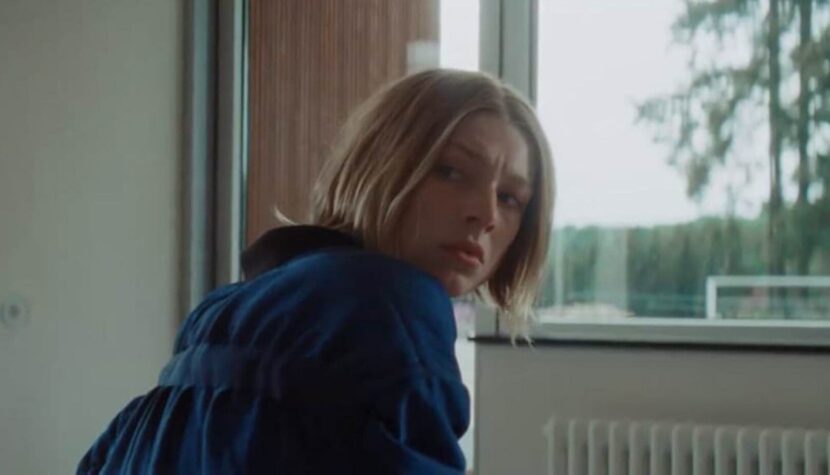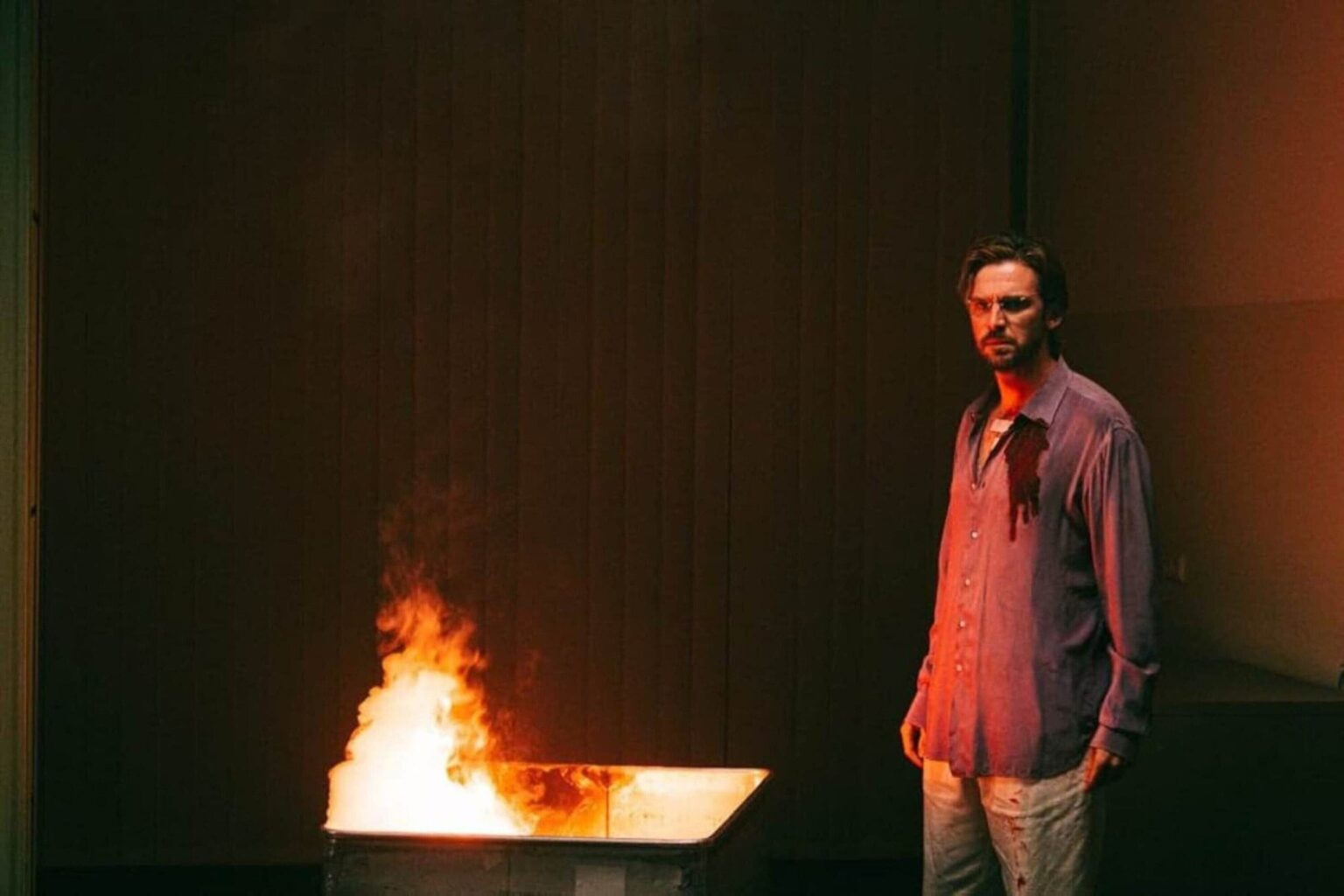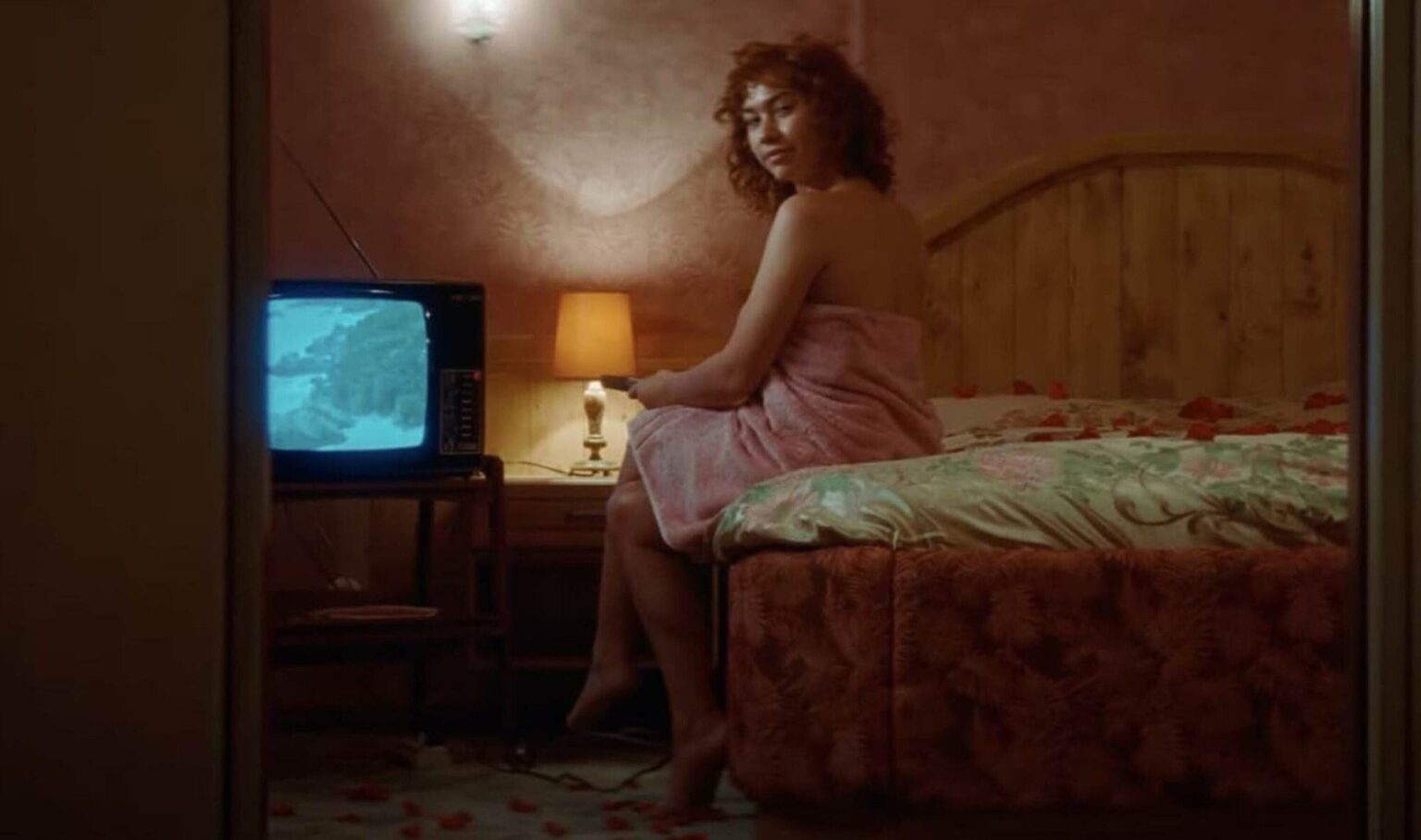CUCKOO. From the Horror Movie Archives [REVIEW]

The teenage Gretchen from “Cuckoo” is seemingly hard to sympathize with. She regularly shows her disdain for the world, demonstratively cutting herself off from her surroundings with the help of headphones and constantly sporting a frustrated look. However, this isn’t just a case of typical teenage angst—against her will, she has been relocated to the Bavarian Alps with her father, stepmother, and half-sister: mute, seven-year-old Alma. It’s no wonder that Gretchen—longing for her biological mother, unable to connect with her new family, and forcibly moved to foreign soil—hides her pain behind a mask of apathy. Naturally, in true horror fashion, the protagonist will soon get a chance to work through her trauma—under combat conditions, in the setting of a mysterious Alpine resort.
In one of the opening scenes of “Cuckoo,” director Tilman Singer gives a nod to fans of Kubrick’s “The Shining”: a car carrying an innocent family traverses a winding mountain road, heading towards the archetypal “haunted house.” This scene is emblematic of the entire film, which is essentially a patchwork of clichés and quotations. Singer follows the same path he took in his feature debut, the satanic horror “Luz.” There, the plot was secondary—the horror of possession was filtered through the lens of 80s European horror cinema, contained within the grainy texture of the image and the synthesizer soundtrack. It’s similar in “Cuckoo,” which—though more aesthetically polished—focuses more on creating an atmosphere than on cause-and-effect narrative logic.

The horror pedigree of the film is thus emphasized from the very first scenes. The resort staff, led by the head of the facility, Herr König, are eerily polite, unsettling screams continuously emanate from the nearby forest, and there’s a subplot involving mysterious research being conducted at a local hospital. All genre tropes are immediately identifiable. This strategy doesn’t necessarily have to be a problem, as Singer shows a clear passion and talent for staging. This is particularly evident in the scene of Gretchen’s nighttime bike ride, during which she realizes she’s being chased by a mysterious entity—the soundtrack is limited to the music coming from her headphones, so the presence of the monster is indicated only by shadows on the road.
The main problem with “Cuckoo,” however, is that the entire film quickly breaks down into a series of such (better or worse) scenes—there is a lack of a narrative glue to bind them into a cohesive whole. A sympathetic viewer might consider the aforementioned primacy of atmosphere over plot as a deliberate creative choice, but it could just as easily be seen as a disruption of directorial priorities. Similarly, the ironic quotation marks Singer uses around his film can be interpreted both as a sign of self-awareness and as a display of caution and creative cynicism. Singer eventually stops pretending that the film is about anything more than playing with genre tropes—viewers unconvinced by this convention will quickly tire of the viewing.

Theoretically, the emotional core of the film is supposed to be Gretchen’s processing of her trauma and rebuilding her relationship with her sister. Unfortunately, this entire motif feels tacked on and is only salvaged by Hunter Schafer’s performance. The actress, known from “Euphoria,” effortlessly deepens the character of Gretchen, highlighting her confusion and sensitivity hidden under a mask of teenage cynicism. Among the rest of the cast, only Dan Stevens stands out as König—with a comically exaggerated German accent, combining psychopathic mannerisms with the pose of a New Age guru. Unfortunately, the other actors (led by Jessica Henwick and Marton Csokas as Gretchen’s parents) don’t have much to do beyond blandly replicating genre stereotypes.
I admit, it feels a bit silly to criticize “Cuckoo”—I appreciate Singer’s genuine passion, but ultimately it results in very little. Among fans of cinematic “midnight madness,” the film will likely find an audience, but for other viewers, it will quickly turn into a tiresome list of quotations. “Cuckoo” is technically competent enough to be watchable—it’s just a shame that it’s even easier to forget.
Written by Jedrzej Paczkowski

